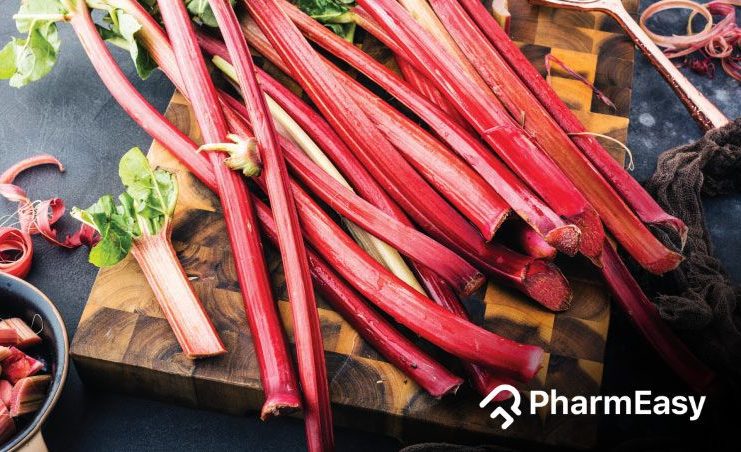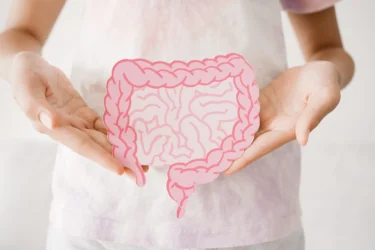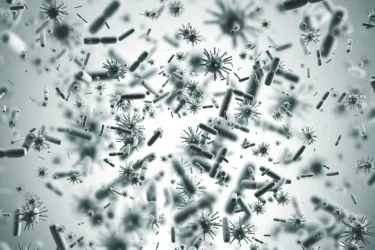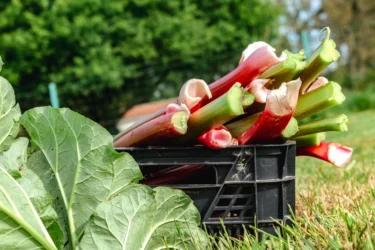Rhubarb: Uses, Benefits, Side effects and More By Dr. Smita Barode
By Dr Smita Barode +2 more

Get,

to manage your symptom
Get your,


4 Cr+ families
benefitted

OTP sent to 9988776655



You’ve successfully subscribed to receive
doctor-approved tips on
Whatsapp

Get ready to feel your best.

Hi There,
Download the PharmEasy App now!!


Register to Avail the Offer
Send OTPBy continuing, you agree with our Privacy Policy and Terms and Conditions

Hi There,
Sign up on PharmEasy now!!
Trusted by 4 crore+ families

OTP sent to 9988776655



You have unlocked 25% off on medicines




Code: NU25
By Dr Smita Barode +2 more
Table of Contents
You might be astonished by the fact that ancient people used different beneficial herbs for healing and promoting healthy living. One such medicinal herb is rhubarb, also known as Rhei and Dahung. Its rhizome has been used as a medicinal plant since 270 BC in China1. Scientifically, rhubarb belongs to the Rheum L. genus of the Polygonaceae family1. There are around 60 types of rhubarb species found globally. Rhubarb is commonly grown in certain parts of Europe, North America, China, and Asia1. It is also grown in the Himalayan region of India.
Rhubarb is a perennial plant with thick roots and erect stems with white-green and purple-red flower clusters on its branches. The leaves are triangular and poisonous, so they are not edible. The plant has edible, long, and fleshy stalks that are cooked and known for their sour taste.

In temperate climates, it is the first plant that is harvested in mid to late spring. You can harvest the plant in around 2 years after the rhubarb seeds germinate. At this time the rhubarb stalks are 12-18 inches long and their colour is usually deep red to a bright green from the presence of anthocyanins. Keep scrolling to read more about rhubarb nutrition facts and health benefits!
Rhubarb has a high nutritional value with the following constituents present in it2.
Rhubarb is a rich source of many nutrients. Among them, vitamin K is one major nutrient that is readily found in rhubarb. Vitamin K plays an important role in blood clot formation10.
Dr. Siddharth Gupta, B.A.M.S, M.D (Ayu)
The medicinal properties of rhubarb are as follows1:
As we know that rhubarb is a rich source of vitamin K. Apart from facilitating blood clotting, vitamin K also plays an important role in maintaining bone health. Thus, rhubarb might help in improving bone health10.
Dr. Rajeev Singh, BAMS
The existing studies show that you might get the following benefits for your health:

Constipation occurs when you find difficulty in passing the stools. A review study1 by Hong Xiang in 2020 showed that rhubarb powder, along with peppermint oil, can effectively relieve constipation caused by type II diabetes, acute stroke and thoracolumbar fractures. Rhubarb may have a strong purgatory tendency which may help in relieving constipation. However, it cannot be a substitute for alternative medication. You should consult a doctor and understand rhubarb benefits before taking rhubarb fruit for constipation.

The intestine plays an important role in the digestion and absorption of nutrients. The intestine has gut bacteria that aids in this process. A study by Hong Xiang in 2020 found that rhubarb promotes the digestion of food by promoting intestinal contractions and movements. It also maintains and regulates the microbial balance of the gut. Intestines protect the body from disease-causing organisms by forming a barrier called as intestinal mucosal barrier. It consists of epithelial, immune and chemical barriers. The study1 also shows that rhubarb protects this intestinal mucosal barrier and regulates its functioning. However, you should never self-medicate rhubarb as an alternate medicine. It is best to consult a doctor regarding the health benefits of eating rhubarb before taking it.

Sepsis is a microbial infection that can affect the digestive tract. The invasion of bacteria may lead to immune dysfunction and affect the clotting process. A study1 by Hong Xiang in 2020 showed that rhubarb can prevent microbial infections by destroying their cell wall. It also shows that rhubarb can stop the bacteria from building resistance against any drug. This property of rhubarb might help in relieving the symptoms of sepsis and protect the body against microbial infections. However, you should consult a doctor regarding rhubarb benefits and side effects instead of self-medicating it.

Fibrosis involves the formation of abnormal fibers in various organs. It may be seen in patients with kidney disease, liver injury, and lung diseases. A study by Hong Xiang in 2020 showed that rhubarb can act against the formation of fibers. It might help in slowing down the progression of the disease. However, you should never use rhubarb as an alternative medicine for the underlying disease. It is best to consult a doctor regarding rhubarb uses and benefits for effective treatment1.

Severe acute pancreatitis (SAP) is a medical condition in which the pancreas becomes swollen. It further leads to multi-organ failure, if not treated correctly. A study by Hong Xiang in 2020 showed that rhubarb, when given with the SAP treatment may increase the treatment efficacy1. However, if you have SAP, don’t self-medicate with rhubarb. It is advised to consult a doctor regarding the medicinal benefits of rhubarb and take the medications accordingly.

Cancer is a condition where the body cells show uncontrolled multiplication and growth. It can affect any organ of the body and can be transferred to other organs too. A study1 by Hong Xiang in 2020 found that rhubarb has a substance named emodin which can inhibit the multiplication of cancerous cells and the spread of cancer. It also has rhein which can cut off the nutrient supply to tumour cells leading to cell death of abnormal cells. The findings show that rhubarb may aid in cancer treatment. However, it should not be substituted for ongoing treatment. It is best to consult a doctor regarding rhubarb’s medicinal properties before consuming it.

The other potential rhubarb medicinal uses are as follows:
Studies that showed rhubarb extract benefits in various conditions need to be revised, and further studies are needed to understand the full extent of the health benefits of rhubarb on human health.
Rhubarb can be used in the following ways:
You must consult a qualified doctor before taking any herbal supplements. Do not discontinue or replace an ongoing treatment of modern medicine with an ayurvedic/ herbal preparation without consulting a qualified doctor.
Although eating rhubarb stalks in moderate quantity is considered safe, according to a study by Hong Xiang conducted in 2020, it might have the following side effects:
Another study by Shanze Li in 2021 concluded that rhubarb may lead to liver damage and toxicity. Therefore, you should consult a doctor immediately if you notice any unusual symptoms after eating it.
Also Read: Kaunch Beej: Uses, Benefits, Side Effects, Precautions and More!
General precautions must be taken while consuming rhubarb. A few of the important precautions are as follows:
Also Read: Khadirarishta: Uses, Benefits, Side Effects & More!
Therefore, it is best to consult a doctor regarding the rhubarb’s nutritional benefits, especially if you are undergoing any treatment.
Also Read: Camphor: Uses, Benefits, Precautions, Side Effects & More!
Yes, rhubarb leaves are poisonous. They have high levels of chemicals that can lead to a burning sensation in the mouth, breathing problems, nausea, vomiting, stomach pain, diarrhea, seizures, eye pain, coma and even death. However, rhubarb leaves are used as a potent insecticide and pesticide.
Rhubarb benefits for skin might include a delay in signs of ageing owing to its high antioxidant and vitamin content. It makes the skin healthy and youthful. Rhubarb benefits for hair might include improving hair texture and prevention of hair loss. Additionally, the quinones in rhubarb might be used in natural hair dye applications9.
The health benefits of rhubarb juice include protecting from infection-causing bacteria, promoting heart health and providing essential nutrients to the body to promote overall health. Additionally, rhubarb benefits the weight loss regime by promoting healthy digestion.
The edible part of the rhubarb plant is its stalk and roots. Its leaves are poisonous and must not be eaten. They can cause severe kidney damage and even death. Rhubarb root health benefits the body by protecting it against bacterial infections and inflammation. It also prevents heart diseases, diabetes, and cancer1.
Rhubarb has numerous health benefits. It can remove toxins from the body and is a natural laxative. Its anti-bacterial and anti-inflammatory properties protect the body from many health issues, including the risk of developing cancer, heart diseases, and others1.
Disclaimer: The information provided here is for educational/awareness purposes only and is not intended to be a substitute for medical treatment by a healthcare professional and should not be relied upon to diagnose or treat any medical condition. The reader should consult a registered medical practitioner to determine the appropriateness of the information before consuming any medication. PharmEasy does not provide any guarantee or warranty (express or implied) regarding the accuracy, adequacy, completeness, legality, reliability, or usefulness of the information; and disclaims any liability arising thereof.
Links and product recommendations in the information provided here are advertisements of third-party products available on the website. PharmEasy does not make any representation of the accuracy or suitability of such products/services. Advertisements do not influence the editorial decisions or content. The information in this blog is subject to change without notice. The authors and administrators reserve the right to modify, add, or remove content without notification. It is your responsibility to review this disclaimer regularly for any changes.
Comments

Leave your comment...
You may also like
Comments